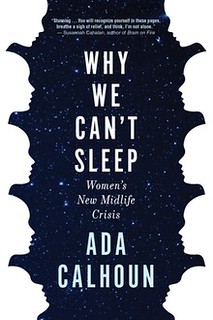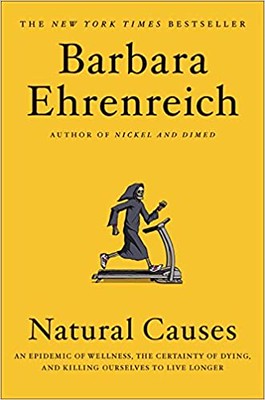by Glenice Lilje
Women’s Health
Geriatric Millennial. That is a term that I would never thought to be described as. Personally, the terms sounds more like an oxymoron, but here we are. The term “Geriatric Millennial” is used to label the microgeneration of those born between the years 1980-1985. We were the last generation to play outside, survived dysentery on the Oregon Trail, ordered pizza on a rotary phone and made mixed tapes from songs recorded off the radio. I am in my last year of my thirties, hardly anywhere near the age that I would be medically considered as geriatric. Well, aside from the fact that my knees may disagree, or that I am constantly misplacing my keys. Geriatric though? Hardly.
Hollywood and has deemed this demographic as “women of a certain age”. You see this group type casted in mother roles or spinsters and typically in a supporting role. Yet, men in their 70’s have no problem getting lead action roles. Products and companies start targeting us at an early age with age-defying creams, hair dyes and cosmetic procedures. Celebrities and influencers try to turn back time by promoting pseudoscience solutions or alternate healthy lifestyles under the guise of New Age or Alternative Medicine. Now, I am all for doing whatever makes you feel good, but in the last decade, my social media has been inundated with so much “health” and “wellness” ads, it’s hard to distinguish fact
With much gratitude, I have had the privilege of watching my mother and grandmothers age gracefully. They grew up without the internet, and followed the advice of their mothers and their mothers before that. I wouldn’t take everything they say as gospel, considering that they use to rub baby oil and iodine on their skin to build up a really good tan. Finding a balance between old school beauty routines and access to information that we have today is a delicate dance that should always include the advice of your medical and health professionals. As I look forward to resembling the matriarchs of my family, I also hope to live vibrantly as long as they do as well. I mean it probably doesn’t hurt to sneak in more fruits and vegetable into our diets and keep an active lifestyle….Geriatric millennial or not.
Below are some books that dive into the topic of female health and wellness. Though they do offer a plethora of information, it is always best to consult a medical provider in regards to your own personal healthcare plan.

Why We Can’t Sleep: Women’s New Midlife Crisis by Ada Calhoun, 2020.
NO, this isn’t another book on menopause or how to deal with hot flashes. Why We Can’t Sleep: Women’s New Midlife Crisis is a book on the new struggles Generation-X women are facing today. Known as the generation raised to “have it all” (career, family, etc.), today’s women are left feeling exhausted and overwhelmed from having to juggle financial and housing stresses, career performance, caregiving, and parenting. Ada Calhoun interviews more than 200 women to find out what keeps them up at night. Readers will find that this book is a testament to Gen-X women to keep striving to attain the life they so desire and not to fall into the trappings of societal expectations.

The Vagina Bible: the Vulva and the Vagina – Separating Myth from Medicine by Dr. Jen Gunter, 2019.
Canadian OB/GYN Dr. Jen Gunter unlocks the mysteries of female sexual health with this modern user’s manual to the vagina and vulva. As a clinical physician of twenty-five years, Dr. Gunter hilariously “Jensplains” the fears, fallacies and misinformation surrounding vaginal health. Topics discussed include but not restricted to: the medical needs of Trans men and Trans women, basic sex ed, debunking the G-Spot, basic vaginal and vulvar functions as well as common health concerns she encounters in her own practice. Readers will enjoy and learning more about reproductive and sexual health in addition to explanation behind non-evidence based “natural” practices (think: vaginal steaming) and internet-propagated misinformation in general.

Natural Causes: An Epidemic of Wellness, the Certainty of Dying and Killing Ourselves to Live Longer by Barbara Enrenreich, 2018.
Why do we over prepare and waste our time worrying about the inevitable? We make appointments for preventative medical screenings, subscribe to wellness and mindfulness influencers, succumb to dietary fads and idolize fitness culture? Barbara Enrenrich dives deeper, like cellular level deep, and looks into the basis of aging and how little control we actually have over it. We can buy all the anti-aging creams and eat only organic superfoods and antioxidants we want, at the end of the day, these things only offer the illusion of control. Natural Causes… examines the way us humans obsess over our immortality or lack thereof and helps us to better prepare ourselves for the end.